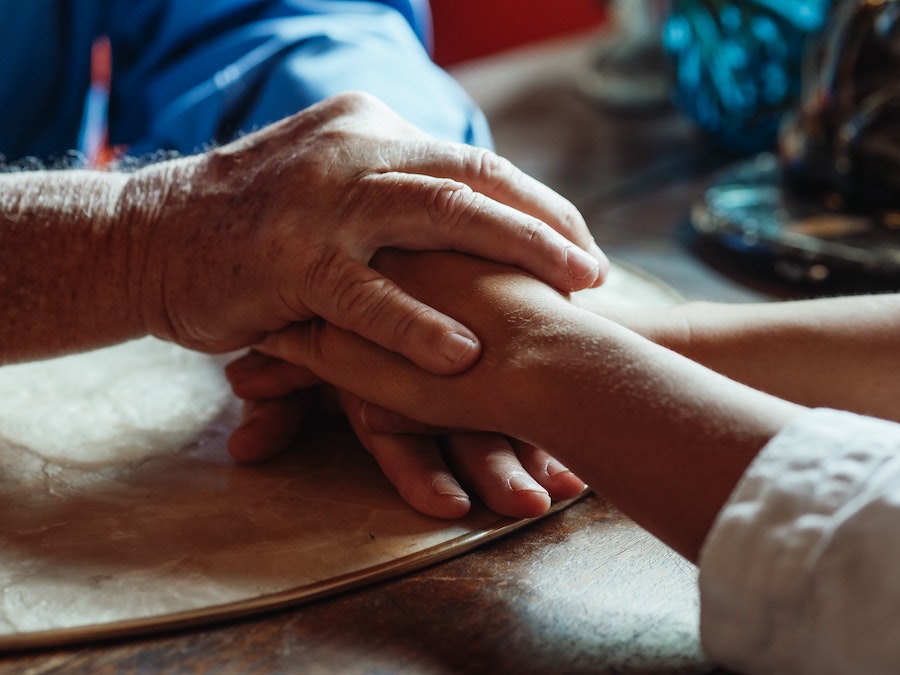Memory Cafe Directory posts and/or links to retailers can be advertising, sponsored, or affiliate links. We may earn a small commission from them. Thank you.
Ensuring a Safe Environment for Those With Memory Loss
Submitted by Guest Contributor:
Amanda Winstead
Caring for someone with memory loss isn’t easy. There are so many things to think about every day that will allow them to maintain a certain quality of life. At the top of your priority list, however, should be their safety.
People with memory loss need to feel comfortable, safe, and secure in their living space. Whether they live in their own home or stay with you, the last thing you want to worry about is something harmful happening to them when you’re not there. Memory loss doesn’t mean they can’t live on their own. But, it can open the door for accidents and dangerous situations.
So, as a caregiver, what can you do to ensure a safe environment if someone you love is dealing with memory loss? Let’s cover some tips that can offer you peace of mind and keep that person in your care as safe as possible.
Keeping the Home Clutter-Free
The majority of people who deal with memory loss tend to be seniors. In addition to struggling to remember, many older individuals also have to handle mobility issues or other health problems. That combination can be risky, especially if they live on their own.
One of the best things you can do to keep them safe at home is to make sure there is no clutter on the floor and keep everything clean.
Start by keeping unsafe objects out of reach or hidden away. Someone with memory issues might not realize what the object is used for right away and could hurt themselves.
Take a look at any potential safety hazards in their living space, from rugs that easily slide around on the floor to furniture and appliances that could fall or be tripped over. As memory health declines, people are at a greater risk of slipping and falling. By securing things in place (including wires from lamps and appliances!), there’s less likely to be an accident.
It’s also a good idea to keep things clean. We’re still in the middle of a global pandemic, and flu season is just around the corner.
By regularly cleaning and disinfecting your patients’ homes, you can better protect them from viruses and other illnesses that could cause emergency health situations. People in the early stages of dementia or Alzheimer’s aren’t always able to remember when they should take medication or even how to keep themselves healthy, so you can do your part by using safe cleaning products around the house several times a week.
Utilizing Technology
Technology in the healthcare industry has come a long way. Nowadays, it can even help people dealing with memory loss.
That starts in the home.
Consider installing smart home devices in your patient’s home. Doing so will help them age in place safely. You can link some devices to your phone, so you’ll have control over things like the thermostat and security systems. You can consistently “check-in” to make sure your patient is safe and everything is running the way it’s supposed to, even if you’re not there.
There are also digital devices specifically designed for people with dementia, including:
- Clocks that specify day and night
- Communication aids like adapted telephones and video chatting devices
- Appliance use monitors
- Location tracking devices
- In-home cameras
There are also wearable emergency devices that can make a big difference in your own peace of mind. Some of these devices signal a problem if they are pressed a certain way or even “rattled” too much, indicating a fall. They can connect you or your patient to local authorities so they can get emergency medical help if needed.
You can utilize as much technology as necessary to ensure your patient remains safe at home. Some people need more than others, but installing just a few simple things can give you more time to take care of yourself and breathe without having to worry.
Creating a Safety Plan
Speaking of taking care of yourself, it’s important to remember that you’re only one person. It’s good to be passionate about what you do. It’s great to have a deep sense of care and devotion to your patient/loved one.
But, you’re probably not going to be able to be around them 24/7.
Once you’ve created a safe home environment for your patient, work directly with them and others to have safety plans in place. For your part, you can prepare for emergencies by:
- Ensuring smoke detectors work throughout the house
- Using night lights
- Checking the locks
- Displaying emergency numbers on their nightstand in large print
You don’t have to be the only one constantly available. Consistency is important when you’re working with a memory loss patient. They’ll be more comfortable communicating and depending on a face they recognize. But, that doesn’t mean you can’t rely on help and support from others.
Talk to your patient’s neighbors about the situation and ask them to keep an eye on the home when you’re not there. Bring someone you trust (another family member or caregiver) into the home and introduce them to your patient. If there’s an emergency or you can’t be there for some reason, having at least one other person on board can make a big difference.
One of the best things you can do for a dementia patient is to stay calm. It’s not uncommon for people struggling with memory loss to get easily frustrated and experience anger issues. Imagine how you might feel if you were losing your memory. It’s a scary, lonely, and infuriating process. Your attitude in terms of your care can make a big difference in your patient’s quality of life.
So, don’t hesitate to inform them whenever you’re taking an extra safety precaution. Explain to them why you’re installing a smart thermometer or why you put your phone number by their nightstand. They may not remember everything, but if you remain neutral and calm as you do it, they’re less likely to feel overwhelmed by the changes.
As hard as it can be to watch someone you care about lose their precious memories, working with them can be one of the most rewarding things you’ll ever do. Put some of these ideas into place to keep them safe, ease your own worries, and help them stay at home as long as possible.
Amanda Winstead

Amanda Winstead
Amanda is a writer from the Portland, Oregon area with a background in communications and a passion for telling stories.
Along with writing, she enjoys traveling, reading, working out, and going to concerts. If you want to follow her writing journey, or even just say hi you can find her on Twitter.
Become a Contributor!
 Do you want to be a Memory Cafe Directory contributor? If you have helpful information to share with our community, read about the guidelines, then get in touch to discuss what you have to offer.
Do you want to be a Memory Cafe Directory contributor? If you have helpful information to share with our community, read about the guidelines, then get in touch to discuss what you have to offer.
Thank you.






